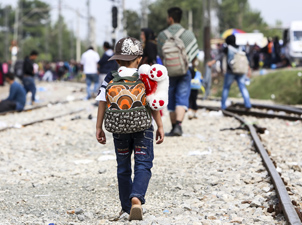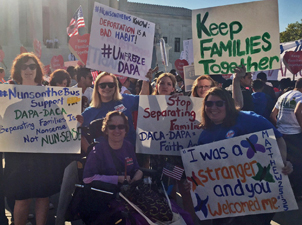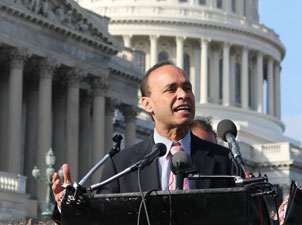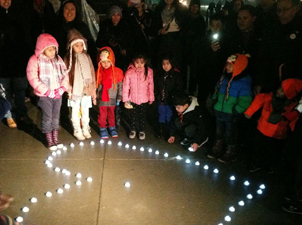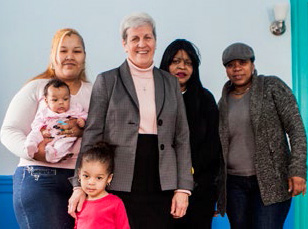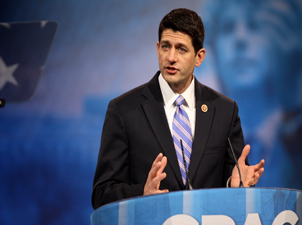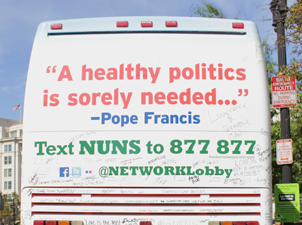
NETWORK Lobby Position on Homeland Security Funding
Download as a print-friendly PDF to share with your friends, or elected officials!
NETWORK believes security is achieved when communities come together in a spirit of fraternity and solidarity and cooperate generously for the common good. The militarization of communities and the separation of families is an anathema to this objective. As people of faith and a nation of immigrants, we are called to welcome the stranger and love our neighbor.
The Department of Homeland Security (DHS) has consistently received additional funds each year to carry out operations at the border and in the interior. The Trump Administration has requested an additional $4.5 billion to the DHS budget for fiscal year 2018 to allow for: the construction of a concrete wall alongside the U.S. – Mexico border, 1,500 new enforcement agents, continued detention and removal costs, and the expansion of E-verify. The goal of this spending is to restrict the flow of immigrants and asylum seekers, create a deportation force and vastly expand private detention centers in the name of national security. Such expenditures will separate families and create terror in immigrant and border communities. These proposals should be rejected.
What Congress Can Do
Reject funding for President Trump’s deportation force: Hiring 1,500 new Customs and Border Patrol and Immigration and Customs Enforcement agents only fuels a deportation forces that will separate families. There is little oversight and almost no accountability for these agents. We must ensure that humane practices are used when detaining undocumented individuals and interacting with people at the border. Communities of color will be the targets of racial profiling and hiring new agents will lead to the separation of families instead of detaining criminals that harm our communities.
Reject funding for President Trump’s expansion of detention centers and close existing ones: We have seen the awful effects of detaining women and children, and an increase in detention bed spaces from 34,000 to 45,700 is unimaginable. New detention centers are being built to accommodate such an increase in this quota, allowing the private detention industry to become more profitable. Instead of this wasteful spending that benefits corporations, there are just and affordable alternatives to detention that DHS can utilize. Private detention centers should be closed.
Reject funding for a U.S. – Mexico border wall: Congress has previously acknowledged that additional barriers to the southern border are not necessary. The requested amount of money to expand upon the existing 650 miles of fencing is extremely wasteful, and additional fencing alone is projected to cost approximately $6.5 million per mile. Border communities oppose a wall along the Southern border because of effects on private property, indigenous communities, and the environment. Additionally, an internal Customs and Border Protection study in April 2016 showed that a concrete wall would make it more difficult for agents to see activity on the other side of the border, hindering effectiveness.







